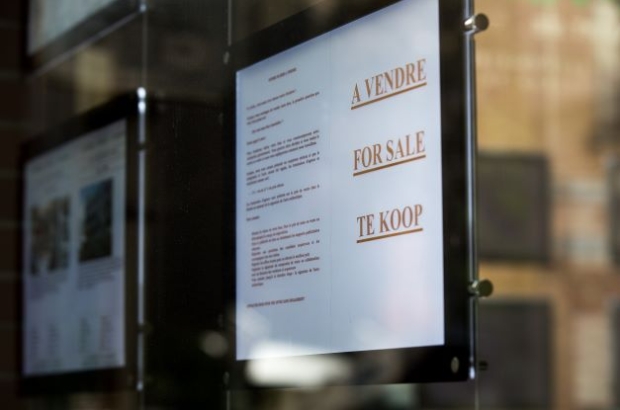- Daily & Weekly newsletters
- Buy & download The Bulletin
- Comment on our articles
Buying property in Belgium: Planning and patience required for the drawn-out process
Purchasing a home in Belgium is a long process as you need to spend time studying the property market to get a feel for what’s available within your price range. When you calculate your budget, you need to take into account a charge of 14-15% on top of the asking price, and that’s before considering removal costs and any potential renovation or redecorating work.
Then comes the day when you finally make an offer and hope that it’ll be accepted. Buying is a two-stage process, beginning with the signing of the compromis de vente/verkoopcompromis. Don't be misguided, this is a fully valid purchase agreement, you cannot get out of it. Unless you are absolutely sure that you can finance it, you should always sign the compromis with a clause that it’s subject to obtaining a loan This means that if you don't get a bank loan, usually within the first month, you can walk away from the sale.
The contract is generally proposed by the real estate agent, but nowadays it’s a good idea to get a notaire/notaris to prepare the compromis. There’s lots of details to be checked and the vendor has to give you an energy performance certificate and the electrical inspection certificate. It also takes time to provide the necessary town planning information (renseignements urbanistiques/stedenbouwkundige inlichtingen) that confirms the regional or municipal rules applying to the property.
If you buy an apartment, the seller also has to give you the acte de base that confirms the rights and obligations of the owners of the apartments in the building, the internal regulations, the minutes of all the meetings of the co-owners and the detail of all the expenses charged to the owners of the apartment by the property manager (le syndic/de syndicus).
Advance on purchase price
It’s usual that the contract states that the purchaser pays an advance of 10% of the purchase price. If you do not go ahead with the sale, you forfeit the advance. And if the vendor has second thoughts, he has to pay back the advance and a penalty of 10%. A tip: pay the 10% advance into your own notary's bank account. If things go wrong, it's easier to get it back.
The second stage is to sign the official deed before a Belgian notary. In Belgium, this is a public officer, appointed by the King, who drafts agreements in a special written form “authentic deeds” that make the agreement between vendor and purchaser opposable to and enforceable against third parties.
A sales agreement for real estate is not valid if it’s not recorded in a notarial deed. It must be registered with the registration (tax) office and to make the transfer public, a copy of the deed is transcribed with the mortgage registry, even if you do not require a mortgage. The mortgage registry acts as the land registry.
You can choose your own notary to advise you on all legal issues. And if the vendor wants to have a notary as well, they split their fees, so it does not prove more expensive for each party. In practice, the notary needs at least two months to prepare the deed. It’s necessary to request the previous sales deed from the notary who handled the previous sale of the property to make sure that the vendor is indeed the owner and that there are no outstanding mortgages on the property. The notary will also require a soil certificate from the vendor and will inform the vendor's tax collector.
The official signing process at the notary’s office must be done within four months. The notary must collect the stamp duty (and their own fee) from the purchaser. The stamp duty is a registration tax due when the purchase deed is registered with the Ministry of Finance. And all notarial deeds and agreements for the purchase of real property must be registered within four months after the compromis, even if the notarial deed has not yet been signed. This is why the notary will insist that you have to sign at their office within four months.
The cost of stamp duty
The stamp duty is 12.5% in Brussels and Wallonia and 12% in Flanders, but it’s 3% for first-time buyers. This explains the rush on properties in Flanders. To qualify for the 3% rate, the buyer must not already own a home or building land and they must take up residence in the house or flat within three years and register with the municipality. Homeowners can, however, benefit from the 3% rate if they undertake to sell it within two years to finance the new house
If you buy an apartment off plan, you pay the stamp duty on the land only. For an apartment, you pay VAT at 21% and in some cases 12%.
Not every sale goes smoothly. But even if the vendor refuses to sell or the buyer to buy, they are rarely taken to court. It often proves to be an expensive option because the plaintiff has no option but to pay the stamp duty upfront. When you issue a writ of summons, the bailiff must register the writ with the tax office, just like the notary. The stamp duty is only €50, but the tax office goes through these writs with a fine comb. And if they find proof that there has been a sale of property, they will send the plaintiff an invitation to pay the stamp duty as soon as the four months are up.
Walking away from the contract is often a cheaper solution.
Marc Quaghebeur, Brussels lawyer at Cabinet David
Photo: © Belga/Siska Gremmelprez


















